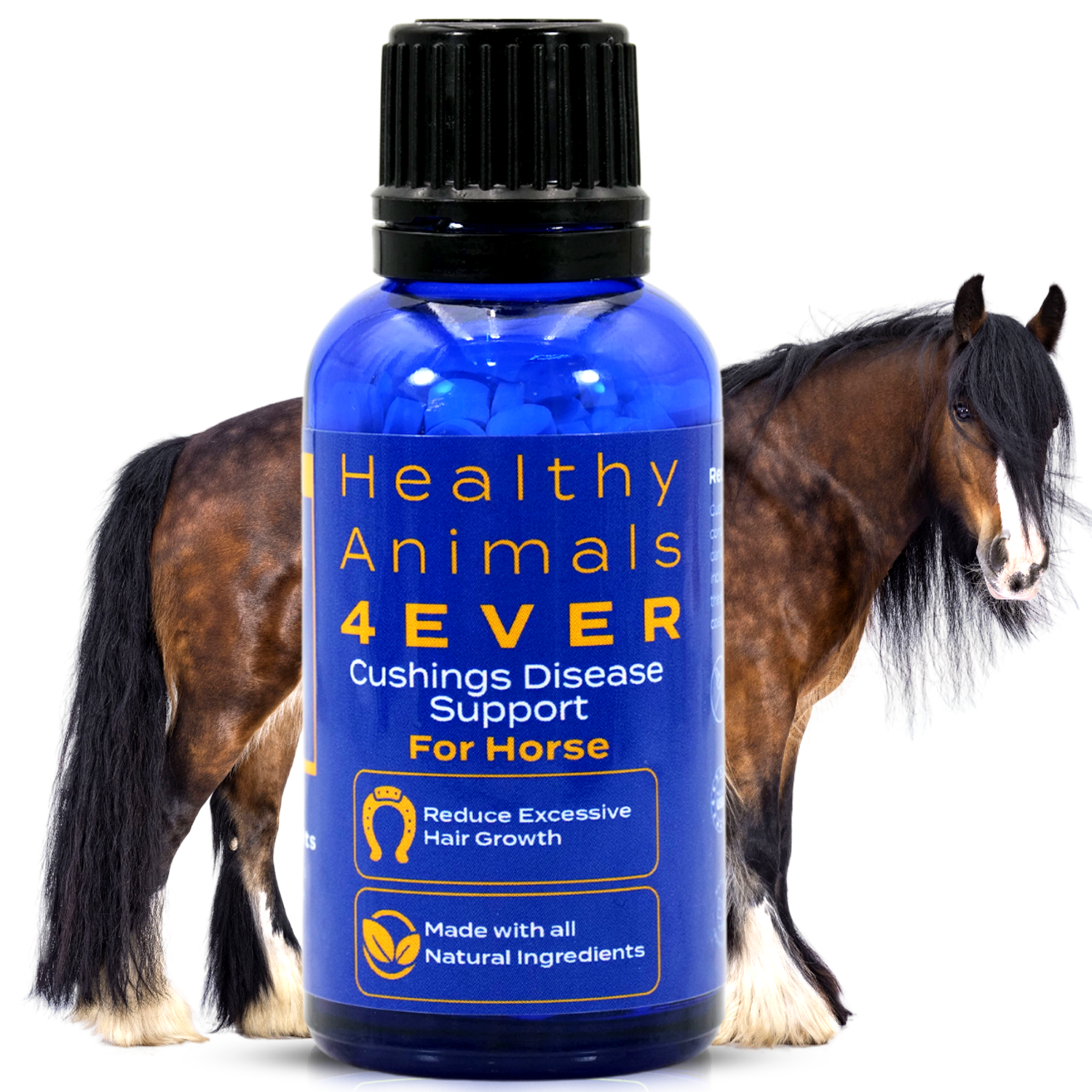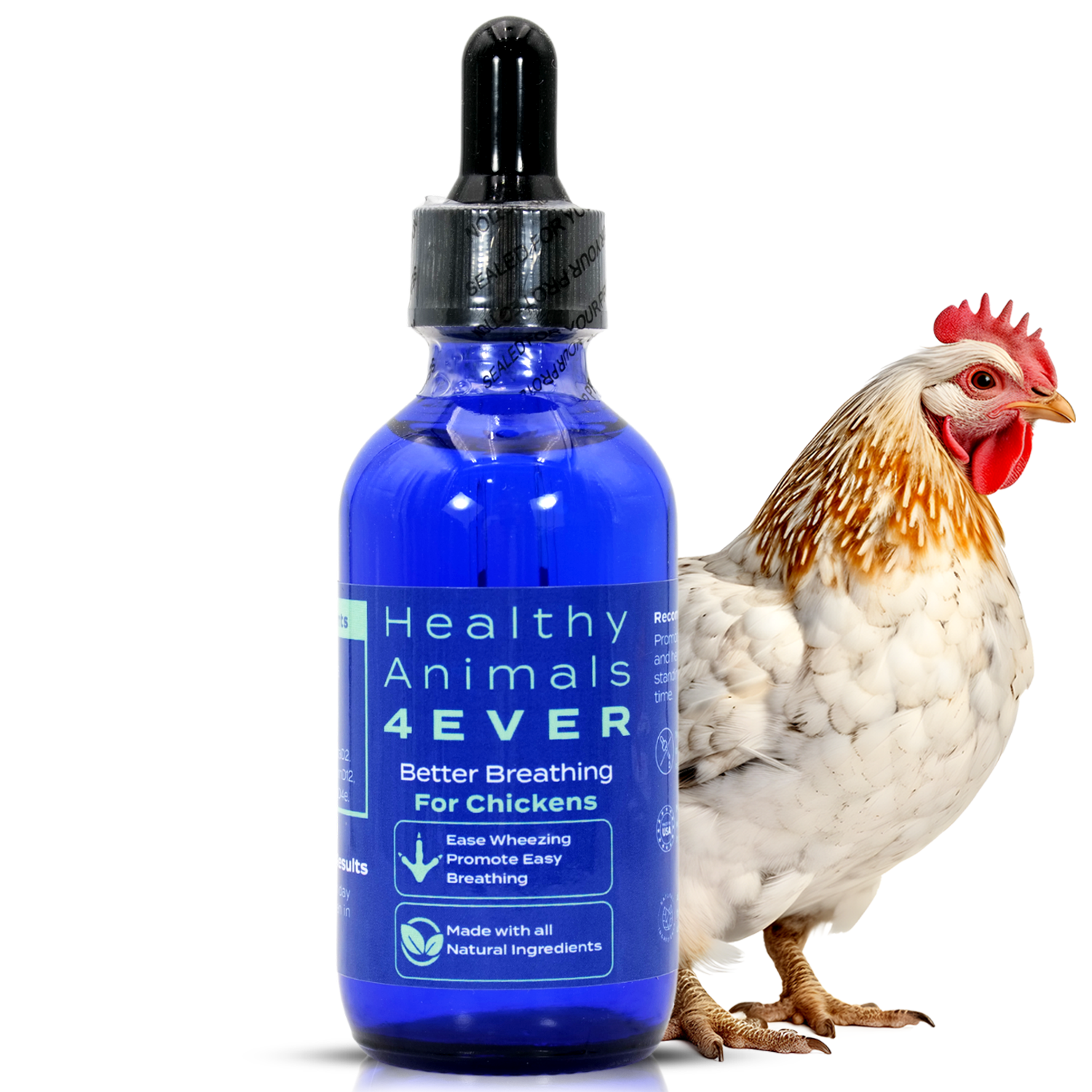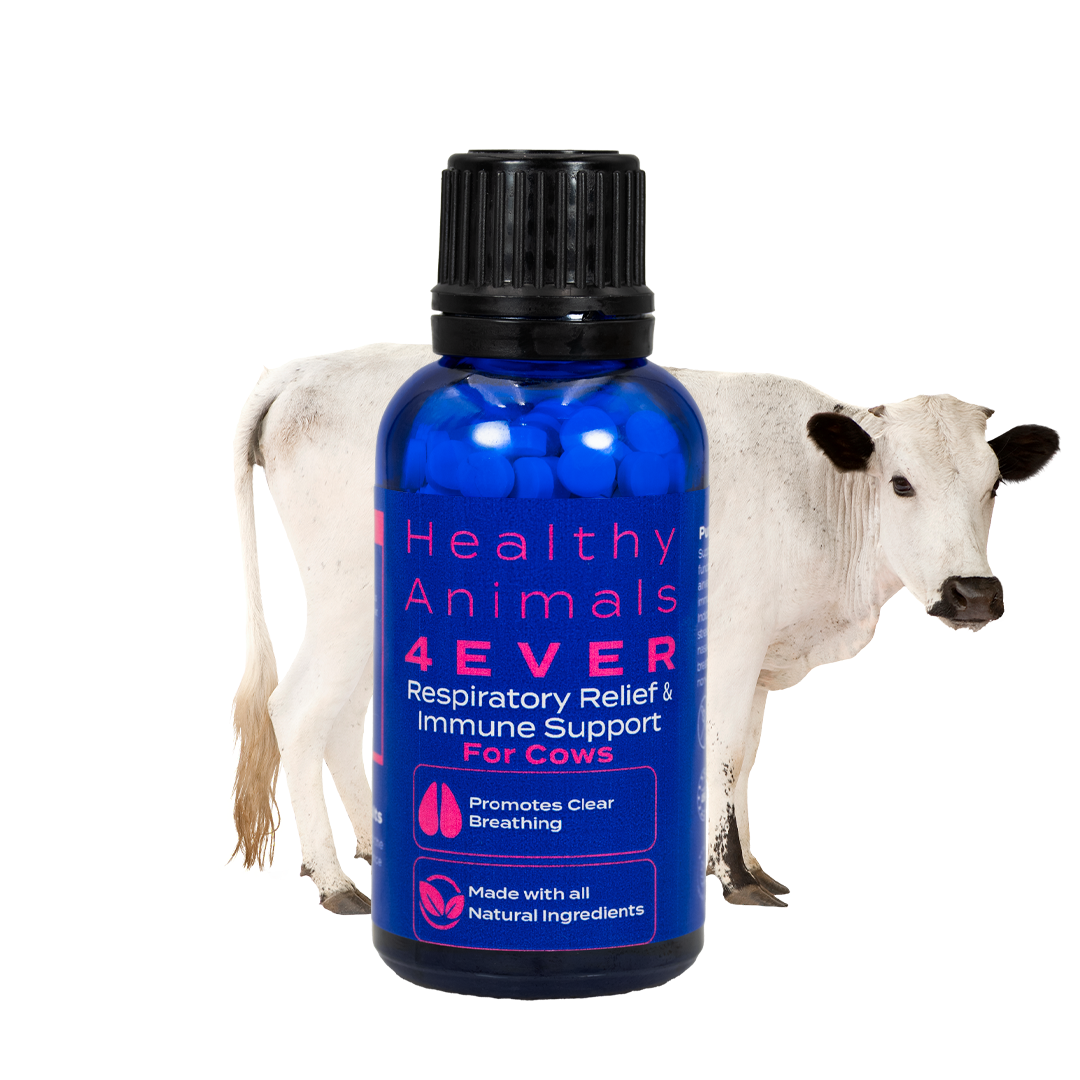Holistic Puppy Care: A Guide to Homeopathy and Wellness for Puppys
Welcoming a new puppy into your home is an exciting journey filled with cuddles, playtime, and endless joy. However, it may also involve some common challenges that come with caring for a young dog.
Understanding and addressing these challenges is crucial for ensuring your puppy's well-being and your own peace of mind as a pet parent. It can help your puppy grow into a happy, well-adjusted adult dog.
Throughout this guide, we'll take a look into the most common puppy issues, the benefits of holistic puppy care, and how homeopathy can support young dogs' issues and significantly improve your puppy's quality of life.

- Understanding Holistic Puppy Care
Caring for a puppy involves more than just feeding it and taking it for walks. Holistic puppy care means considering all aspects of its health and well-being.
It’s an approach that considers your puppy's entire well-being, including its physical health, emotional state, and behavioral needs. Rather than focusing solely on treating symptoms or specific ailments, holistic care aims to address the root causes of health issues and promote overall wellness.
In essence, holistic puppy care is about treating the puppy as a whole being and providing them with the support they need to thrive in all aspects. With this approach, we can help our puppies live healthier, happier lives from the start.
Fortress Metabolic Strengthening is a strengthening formula for your dog’s metabolic system. Promotes the healthy functioning of the liver. Natural support for parasite cleanse & may help with die-off symptoms. All-natural formula. Safe and easy to use.
1.1 How Does it Differ from Conventional Care?
Conventional veterinary care typically focuses on treating specific health problems with medications or surgeries. While this approach can be practical and necessary for specific issues, it often overlooks other factors contributing to the problem or affecting the puppy's overall well-being.
In contrast, holistic puppy care takes a broader view. It seeks to address the root causes of health problems rather than just treating the symptoms. This may involve using natural therapies, such as dietary changes, supplements, acupuncture, massage, and even homeopathy, to support the puppy's body in healing itself.
1.2 Benefits of Holistic Puppy Care
Holistic puppy care offers several benefits over traditional veterinary care, including:
Prevention of Health Issues: Holistic care can help prevent health problems before they arise by addressing underlying imbalances and promoting wellness.
Reduced Dependence on Medications: Holistic approaches often emphasize natural remedies and lifestyle changes, reducing the need for medications with potential side effects.
Improved Quality of Life: By focusing on the whole dog, holistic care can improve a puppy's quality of life by addressing physical ailments and emotional and behavioral issues.
- Homeopathy for Puppies
When caring for our puppies, many pet owners are turning to alternative and natural approaches. Homeopathy is a form of holistic medicine that has been used for centuries to promote healing in humans and animals.
2.1 What is Homeopathy?
Homeopathy is a natural healing system based on the principle of "like cures like." Homeopathic remedies are made from plant, mineral, or animal substances that are diluted and potentized to remove any toxic effects while retaining their healing properties.
These remedies are gentle, safe, and free from side effects, making them suitable for puppies and other animals.
2.2 How Homeopathy Works for Puppies
Homeopathy stimulates the body's innate healing ability to restore balance and promote overall wellness. Rather than suppressing symptoms, homeopathic remedies address the underlying cause of the problem, whether physical, emotional, or mental.
For example, if a puppy is experiencing digestive issues like diarrhea or vomiting, a homeopathic remedy that matches their specific symptoms and constitution can help to soothe their stomach and restore normal bowel function. Similarly, suppose a puppy is anxious or fearful. In that case, a carefully selected homeopathic remedy can help to calm their nerves and reduce stress.
2.3 Safety and Efficacy of Homeopathic Remedies
One of homeopathy's benefits is its safety profile. Because homeopathic remedies are highly diluted and gentle, they are generally safe for use in puppies and other animals, with no risk of toxicity or adverse reactions.
Additionally, homeopathy can be used alongside conventional veterinary care and other holistic therapies without interference. However, it's important to note that while homeopathy can be effective for many common puppy issues, it's not a replacement for proper veterinary care in cases of severe illness or injury.
Homeopathy offers a natural and gentle approach to promoting health and wellness in puppies. By harnessing the body's own healing mechanisms, homeopathic remedies can help to address a wide range of health concerns while supporting the puppy's overall well-being.
- Common Puppy Issues
Puppies can experience a range of health issues as they grow and develop. Let's take a closer look at how we can help address issues such as teething discomfort, separation anxiety, and digestive problems in puppies. And homeopathic remedies that can help alleviate these ailments.
3.1 Teething Discomfort
Understanding Puppy Teething
Puppies go through a teething phase as they grow. This is a natural process where baby teeth fall out to make way for their adult teeth. Teething typically starts when a puppy is around 3 to 6 months old and can last several months.

Signs of Teething Discomfort
During this time, you may notice some signs that your puppy is experiencing discomfort. These can include:
Chewing on everything: Your puppy may chew on furniture, shoes, or anything they can get their teeth on to relieve the pain and pressure in their gums.
Drooling: Excessive drooling is common in teething puppies due to the increased saliva production.
Irritability: Your puppy may seem more irritable or restless than usual due to the discomfort in their mouth.
Bleeding gums: As your puppy's baby teeth loosen and adult teeth come in, you may notice some slight bleeding or redness around its gums.
Managing Teething Discomfort
Fortunately, there are several ways you can help ease your puppy's teething discomfort:
Appropriate chew toys: Providing your puppy with safe and durable chew toys can help redirect its chewing behavior away from your belongings.
Use cold items: Cold can help numb your puppy's gums and provide relief. Consider giving them frozen washcloths, frozen carrots, or special teething toys that can be chilled in the freezer.
Supervise playtime: Keep a close eye on your puppy during playtime to ensure they're not chewing on anything dangerous or harmful.
Positive reinforcement: Praise and reward your puppy when they chew on their toys instead of inappropriate items.
Teething discomfort is a normal part of puppyhood, but with patience and the right tools, you can help your puppy through this phase with minimal stress. By providing appropriate chew toys, supervising playtime, and offering cold items for relief, you'll ensure that your puppy's teething experience is as comfortable as possible.
Homeopathy offers several remedies that can help ease teething discomfort and support healthy dental development in puppies, such as Chamomille, Calcarea carbonica, and Belladonna, as these remedies can help soothe sore gums, reduce inflammation, and alleviate pain.
Teething Relief and Calming Tablet promotes calmness in your dog. It helps with anxiety and irritation from teething, storms, and other triggers. Helps reduce teething pain, discomfort, and more. All-natural formula. Easy to use.
3.2 Separation Anxiety
Understanding Separation Anxiety
Separation anxiety is a common issue among puppies and occurs when they feel distressed or anxious when left alone. This anxiety can manifest in various behaviors, such as whining, barking, destructive chewing, or even attempts to escape.

Signs of Separation Anxiety
Recognizing the signs of separation anxiety is essential for addressing the issue effectively. Some common signs include:
- Excessive barking or howling when left alone;
- Destructive behavior, such as chewing furniture or scratching doors;
- Potty accidents indoors, even if the puppy is usually house-trained;
- Excessive drooling or panting when separated from their owner;
- Pacing or restlessness before the owner leaves or upon their return.
Causes of Separation Anxiety
- Several factors can contribute to separation anxiety in puppies, including:
- Sudden changes in routine or environment;
- Lack of socialization or exposure to being alone;
- Previous traumatic experiences, such as abandonment or rehoming;
- Overly dependent relationship with their owner.
Managing Separation Anxiety
While separation anxiety can be challenging, there are strategies you can use to help your puppy cope:
Gradual desensitization: Practice leaving your puppy alone for short periods and gradually increasing the duration.
Establish a routine: To help your puppy feel secure, create a consistent schedule for feeding, exercise, and alone time.
Provide distractions: Leave interactive toys or puzzle feeders to keep your puppy occupied while you're away.
Seek professional help: If your puppy's separation anxiety persists or worsens, consult a veterinarian or animal behaviorist for guidance.
Many puppies experience separation anxiety, but it can be managed effectively with patience and understanding. Recognizing the signs of separation anxiety, addressing potential causes, and implementing appropriate strategies can help your puppy feel more comfortable and confident when left alone.
Homeopathy offers gentle remedies to help calm anxious puppies and ease their fear of being alone. These remedies include Ignatia, Pulsatilla, and Arsenicum album, often used to treat separation anxiety in puppies, as they can help stabilize emotions, reduce restlessness, and promote a sense of security.
Anxiety and Over-Reaction from Fear is a natural remedy for calmness and reduced fear in dogs. It helps minimize stress and fear responses. Useful for generalized, separation, social, and environmental anxiety. All-natural formula. Non-drowsy relief. Easy to use.
3.3 Digestive Issues
Understanding Digestive Problems in Puppies
Puppies can experience digestive issues ranging from mild discomfort to more severe problems. These issues can affect their appetite, bowel movements, and overall well-being.
Common Digestive Problems
Some of the most common digestive problems in puppies include:
Diarrhea: Loose or watery stools that may occur suddenly and frequently.
Vomiting: Forceful expulsion of stomach contents through the mouth, which may be accompanied by other symptoms like lethargy or loss of appetite.
Constipation: Difficulty passing stools, which can result in straining and discomfort.
Upset stomach: General discomfort or pain in the abdominal area, which may be accompanied by symptoms like excessive gas or bloating.
Causes of Digestive Issues
Digestive problems in puppies can have various causes, including:
Dietary changes: Abrupt changes in diet or the introduction of new foods can upset your puppy's stomach.
Food allergies or intolerances: Some puppies may have sensitivities to certain ingredients in their food.
Stress or anxiety: Environmental changes, such as moving to a new home or being separated from their littermates, can trigger digestive issues.
Parasites or infections: Worms, bacteria, or viruses can cause gastrointestinal problems in puppies.
Tips for Preventing and Addressing Digestive Issues
To prevent and address digestive problems in puppies, consider the following tips:
Gradual transition to new foods: When changing your puppy's diet, introduce new foods gradually to allow their digestive system to adjust.
Proper hydration: Ensure your puppy has access to fresh water at all times to prevent dehydration, especially during bouts of diarrhea or vomiting.
Regular vet check-ups: Schedule routine check-ups with your veterinarian to monitor your puppy's digestive health and address any concerns promptly.
Keeping a food and symptom diary: Keep track of what your puppy eats and any symptoms they experience to help identify potential triggers for digestive issues.
Adjusting feeding schedules or portions: If your puppy experiences frequent digestive problems, consider adjusting their feeding schedule or portion sizes to better suit their needs.
Digestive issues are a common concern for puppy owners, but with proper care and attention, they can often be managed effectively. Understanding the common causes of digestive problems, implementing preventive measures, and seeking veterinary care when needed can help keep your puppy's digestive system healthy and happy.
Homeopathy offers gentle remedies that can help soothe digestive upset and restore balance to the gastrointestinal system. Nux vomica, Arsenicum album, and Podophyllum are commonly used to address digestive problems in puppies, as they help to regulate bowel function, alleviate nausea, and reduce discomfort.
All Digestive gives a natural digestive support for dogs. Helps with stomach upset, diarrhea, and gastritis. It aids in restoring digestive balance and your pet's comfort. All-natural formula. Easy to use.
- Integrating Holistic Approaches into Your Puppy's Care Routine
Taking a holistic approach to caring for your puppy involves considering all aspects of their health and well-being; by integrating holistic practices into your puppy's care routine, you can support their overall health and help them thrive.
Here are some steps you can take to incorporate holistic approaches into your puppy's care:
4.1 Creating a Holistic Care Plan
Start by creating a holistic care plan for your puppy that addresses their needs and concerns. This plan should include elements such as:
Diet: Feed your puppy a balanced diet of high-quality, natural ingredients. Consider incorporating fresh fruits and vegetables, lean proteins, and whole grains to provide essential nutrients and support digestive health.
Exercise: Ensure your puppy gets plenty of exercise to maintain a healthy weight, build muscle strength, and stimulate their mind. Take them for daily walks, play interactive games, and provide opportunities for socialization with other dogs and people.
Stress Management: Help your puppy manage stress and anxiety by providing a safe and secure environment, establishing routines, and offering plenty of mental stimulation and relaxation opportunities.
4.2 Incorporating Homeopathy and Other Holistic Therapies
Integrate homeopathy and other holistic therapies into your puppy's care routine to address specific health issues and promote overall wellness. Consult a qualified homeopathic veterinarian to determine the most appropriate remedies and treatment protocols for your puppy's needs.
In addition to homeopathy, consider incorporating other holistic therapies such as acupuncture, massage, herbal medicine, and chiropractic care to support your puppy's health and well-being.
4.3 Importance of a Balanced Approach
While holistic approaches can be beneficial for promoting your puppy's overall health, it's essential to maintain a balanced approach to their care. This means combining holistic practices with conventional veterinary care, including regular check-ups, vaccinations, and preventative treatments.
Work closely with your veterinarian to ensure your puppy receives comprehensive care that addresses all aspects of their health and well-being.
4.4 Monitoring and Adjusting Your Puppy's Care Routine
Regularly monitor your puppy's health and behavior to identify any changes or issues that may arise. Please keep track of their eating habits, energy levels, bowel movements, and overall demeanor to detect any signs of illness or discomfort.
If you notice any concerns, consult your veterinarian or holistic practitioner promptly to determine the appropriate action. Be open to adjusting your puppy's care routine as needed to accommodate their evolving needs and ensure they receive the best possible care.
Integrating holistic approaches into your puppy's care routine can help support their overall health and well-being naturally and gently. By focusing on their physical, emotional, and mental needs and incorporating practices such as homeopathy, acupuncture, and stress management techniques, you can help your puppy live a happy, healthy life.
If you want to improve your pets health gently and safely, check out our homeopathic remedies here.

The Bottom Line
Caring for a puppy is a joyful responsibility that goes beyond providing food and shelter. It entails nurturing their physical, emotional, and mental well-being to ensure they grow into healthy, happy adult dogs.
In this blog, we've explored the importance of holistic approaches to puppy care, with a particular focus on the benefits of homeopathy.
By integrating homeopathy and other holistic therapies into your puppy's care routine, you can support their overall health and well-being gently and naturally, as it offers safe and effective remedies for common puppy issues such as teething discomfort, separation anxiety, and digestive problems.
Incorporating holistic approaches into your puppy's care routine requires dedication, patience, and a willingness to learn. Still, it pays off, helping your puppy live a happy, healthy life from puppyhood through adulthood.
So, are you ready to embrace the journey of holistic puppy care?
Enjoy the rewarding experience of watching your puppy grow into a cherished family member.












